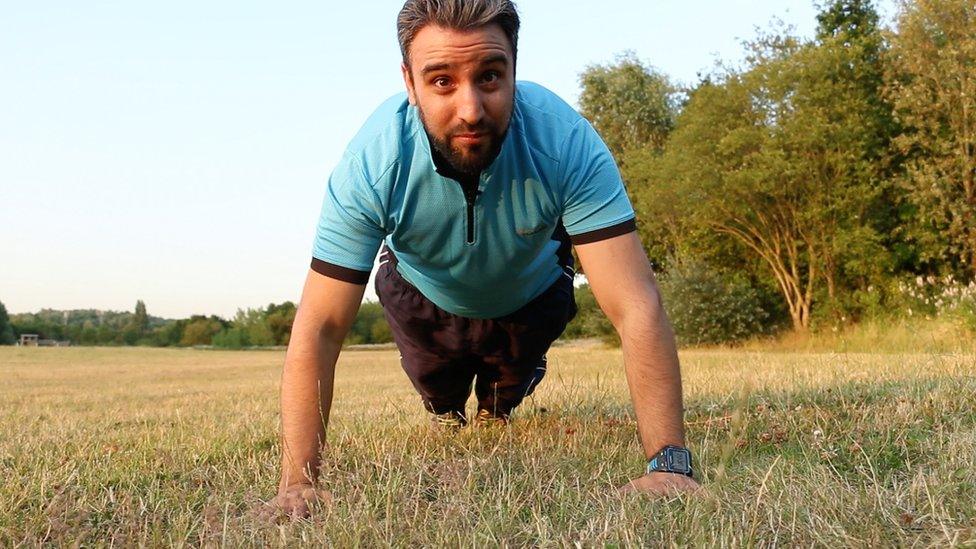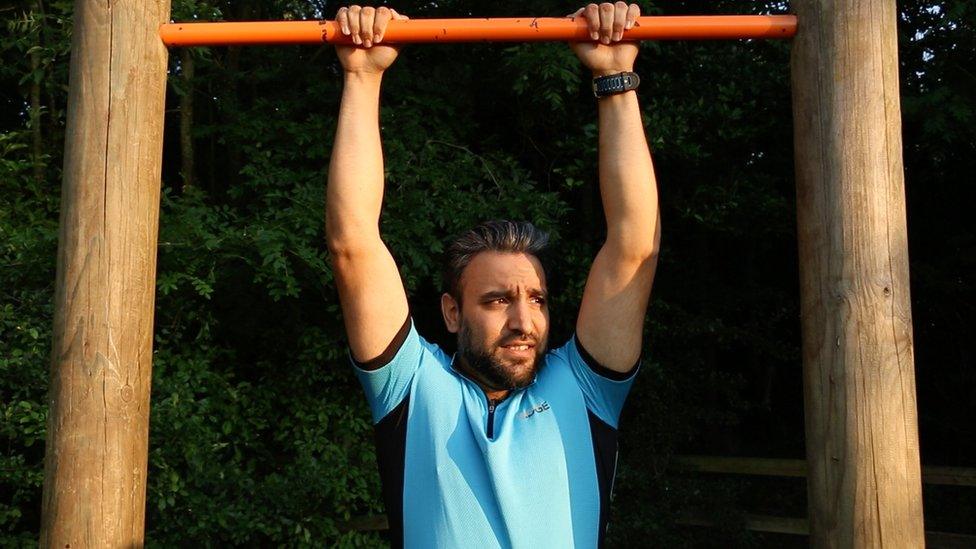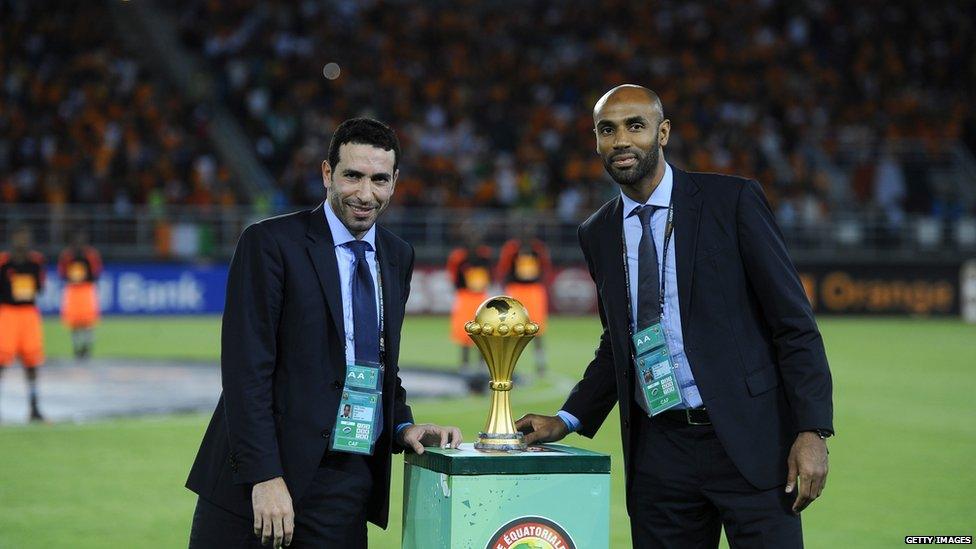Ramadan: What it's like to train on an empty stomach
- Published

Haris Mahmood is fasting while training for a triathlon
If you'd find it difficult to go without food and water for a day, imagine what it's like for an athlete.
"You have to basically ignore the thirst, the hunger and carry on," says Haris Mahmood.
He's been fasting for the month of Ramadan since he was 11.
A few years ago he decided to train and fast as he felt that there was a strong connection between the two.
"Training and fasting both require discipline, patience and mental strength.
"When you do both at once, they both strengthen simultaneously - you train your body to your own will when you fast."
He's taking part in a triathlon and trains four times a week at the gym and in the park.
During Ramadan he says he tries not to overdo things.
"I want to train my body to take the levels of stress that it needs in a triathlon or any sport.
"It's the same thing with fasting. The more you fast, the more your body gets used to it."
He says a balanced diet is important, especially during the holy month.
"I usually try to incorporate protein, fibre, simple carbohydrates. I eat fruits and try and get the right vitamins once I break my fast.

"It's challenging but you know what, it's mind over matter because for poor people, their lives don't stop so mine shouldn't either."
Many famous athletes have been known to fast and train too.
Boxer Amir Khan says he is fasting but that it isn't something a sportsman should be doing.
He says: "It's extremely tough, but the motivation for me is that my opponents are sleeping whilst Amir Khan is training."
Former Tottenham and West Ham striker, Frederic Kanoute, has said he always observes Ramadan strictly and that it has never caused a problem during his training.
He has previously said that his teammates have been curious.
"They wonder why I don't eat and ask all these questions, but you have to answer them," he says.
"It's good also because it's witnessing the religion and we can talk about that."

Egyptian midfielder Mohamed Aboutrika and Frederic Kanoute
Some don't think think fasting and sports can work.
In the 2014 World Cup, the Algerian team was criticised after playing Germany in the quarter-finals.
The accusation was that fasting had affected some of the players.
The former Algerian coach Vahid Halilhodzic reacted angrily.
He said that Ramadan was a private matter and it was up to the players whether they fasted or not.
Health risks
Is it possible to fast and play sport?
General Practitioner Dr Aisha Awan thinks so, as long as someone is healthy and has a balanced diet as soon as they are allowed to eat.
"Eating a meal with the right nutrients before sunrise and after the sunset is very important for the body, and plenty of fluids is essential."
The advice is that on average a man who is not exercising much and fasts should eat around 2,000 calories a day.
For women it's around 1,500 calories, but for those who are training it's usually double.
Dr Awan says: "During Ramadan I come across some Muslims who go to the gym and fast, but they will tend to go just before they can break their fast.
"It is very important for the person who trains during Ramadan, that he or she is in good shape and is used to training outside Ramadan, otherwise it could be a health hazard."
Follow @BBCNewsbeat, external on Twitter, BBCNewsbeat, external on Instagram, Radio1Newsbeat, external on YouTube and you can now follow BBC_Newsbeat on Snapchat